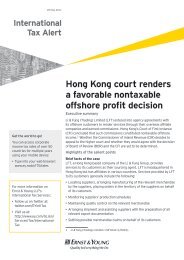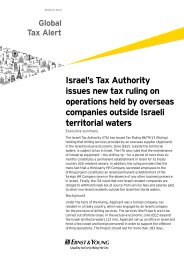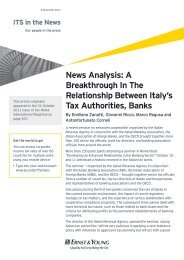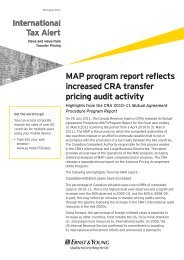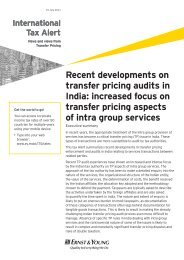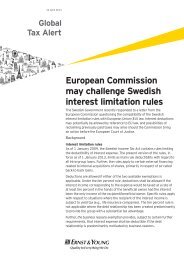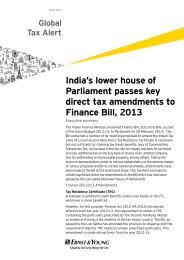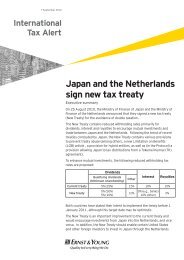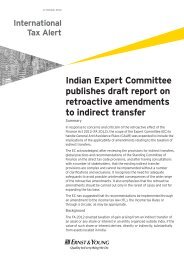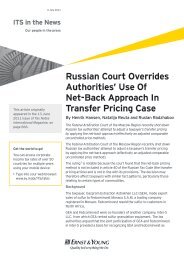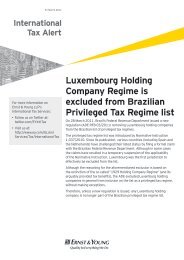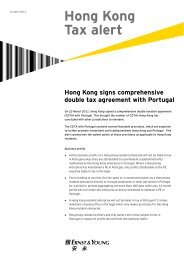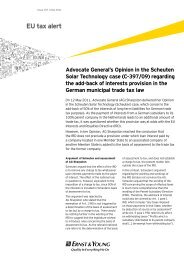Download - Ernst & Young T Magazine
Download - Ernst & Young T Magazine
Download - Ernst & Young T Magazine
Create successful ePaper yourself
Turn your PDF publications into a flip-book with our unique Google optimized e-Paper software.
Credit: Diageo / Tim Bishop<br />
• By Bill Millar<br />
International experience is becoming<br />
increasingly valuable in a world where<br />
globalization continues to deepen. To succeed<br />
at a senior level, executives need an<br />
understanding and awareness of different<br />
cultures. And perhaps the best way of developing<br />
this experience is through a series of temporary<br />
foreign assignments or secondments.<br />
Moving executives around the globe can be a<br />
valuable way of developing<br />
Summary<br />
Secondments abroad<br />
represent a valuable<br />
opportunity for<br />
employers and<br />
employees alike. But<br />
companies need to<br />
take steps to make<br />
sure that employees<br />
still feel valued once<br />
they return.<br />
the managerial skills and<br />
knowledge that are<br />
necessary for an<br />
international business, but it<br />
can be challenging to get<br />
right. One of the biggest<br />
problems is the regular<br />
departure of executives after<br />
the completion of a foreign<br />
assignment, especially in the<br />
The reintegration process Management<br />
immediate 12–24 months after repatriation.<br />
Over the years, countless surveys have shown<br />
that expatriates who have recently returned<br />
from a secondment are much more likely to leave<br />
the company than those who have not been<br />
away.<br />
This sounds counterintuitive. After all, if a<br />
company is willing to invest time and money to<br />
build the international experience and knowledge<br />
of its high-potential managers, surely those<br />
executives would be more likely to remain loyal.<br />
In fact, the opposite is true. One of the main<br />
reasons for this is that, on return, expatriates<br />
find that the dynamics and management teams<br />
in their home country have changed, leaving<br />
them without their original sponsors or mentors.<br />
“They can return to a sort of vacuum, with no job<br />
and no one looking out for them,” says Marion<br />
Festing, Professor at the Berlin campus of the<br />
ESCP Europe Business School.<br />
A weak economy exacerbates this problem. In<br />
the current environment, many executives are<br />
Welcome back.<br />
Now – please don’t leave!<br />
Departure rates among executives returning to their home country<br />
following an offshore secondment are well above average. Stemming these<br />
losses requires careful planning and constant communication.<br />
<strong>Ernst</strong> & <strong>Young</strong> Issue 07 T <strong>Magazine</strong> 41



